Contact Us
News & Notes
- March 2025: Health, nutrition, and the climate are all connected to the foods we eat. There is much focus on eating fruits and vegetables to support good health and balanced nutrition and on the resources that go into growing produce are significant. Dr. Stacey Snelling wrote an article suggesting we consider incorporating more frozen produce into our weekly diets for the health, environmental, and economic benefits.
- January 2025: The Healthy Schools, Healthy Communities Lab released the Resilient Food System Summit Report. The report shares written and illustrated summaries from keynote and breakout sessions that took place at the October 9, 2024 Summit. Next steps for developing indicators to measure progress toward a more resilient and equitable regional food system in the areas of production, distribution, and consumption are also outlined.
- December 2024: The Healthy Schools, Healthy Communities Lab shared its FY24 DC Equitable Food System report. This report shares the outcomes of stakeholder activities within the pillars of Production, Distribution, and Consumption, as well as our process for monitoring and evaluating the changing food landscape in Wards 7 and 8.
Check out the latest publication from the lab in the Journal of Child Nutrition Management, demonstrating the increases in consumption of fruits and vegetables among elementary school children when offered as appetizers and other choices.
The Healthy Schools, Healthy Communities Lab was also highlighted in the East of the River News for their Produce Project with Pilgrim Rest Baptist Church, as part of the Equitable Food System work to improve access and consumption of fresh produce. - November 2024: The 8th Annual Healthy Corners Evaluation report was released, detailing strengths and opportunities of the program to support fresh food access in underserved areas of DC.
- October 2024: We welcomed representatives from over 50 organizations to American University for the Resilient Food System Summit on October 9, 2024 — see the Resilient Food System Summit Report. Food system leaders Renee Catacalos and Ellie Bomstein, along with three insightful panelists, Alexander Moore, Christopher Bradshaw, James Tate, shared their personal and professional commitment to the local food system. The discussions fostered meaningful connections and highlighted the importance of collaboration in building a resilient food system in the Washington, DC, area. See videos from the summit playlist.
- September 2024: The two-year HEAL-DC project focused on advancing health literacy for DC residents has wrapped up. We are so grateful to our partners, Pilgrim Rest Baptist Church, Urban Outreach Ministries, and Wesley Theological Seminary. Partnerships with trusted community-based organizations enhances the reach and impact of pop-up health events, so people can FIND, KNOW, and USE health information for lasting empowerment.
- April 2024: The Healthy Schools, Healthy Communities lab's $2.8 million grant from Novo Nordisk to address food insecurity in DC and support local Black farmers was featured in a story by The Eagle.
- February 2023: Watch the 3-mintue video on Faithfully Fit's work in the community: "DC pastors are promoting healthy living among congregants."
Health Test
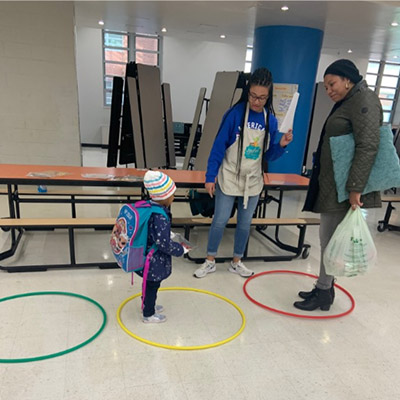
An HSHC team member integrates physical activity and nutrition education at a Joyful Food Market
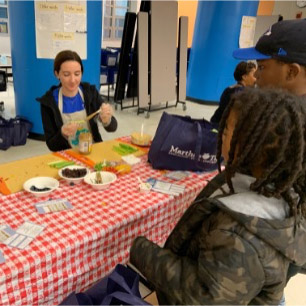
Students at the Joyful Food Market learn about healthy snacking by making and eating Ants on Log
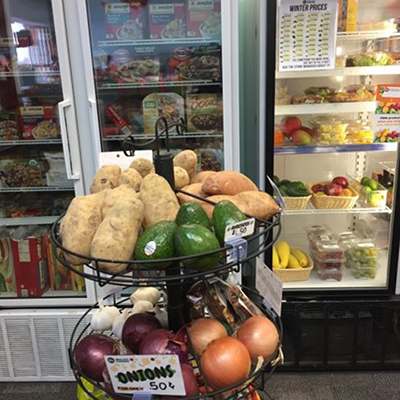
Partnering with DC Central Kitchen and DC DOH, we seek to evaluate the use of corner stores to increase acces to fresh produce in food deserts in Washington, DC.
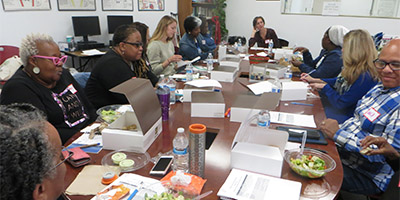
Partnering with five faith-based organizations in Ward 7 to manage and prevent obesity.
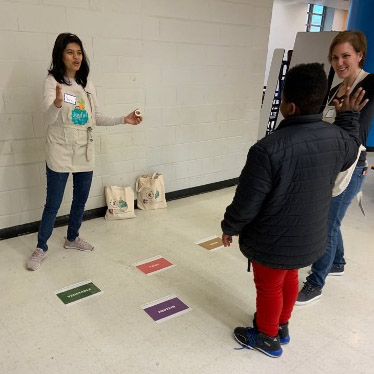
The HSHC team teaches students at the Joyful Food Market about the MyPlate 5 Food Groups
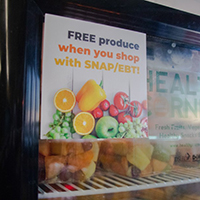
Increasing access of fresh produce in corner stores in Washington, DC
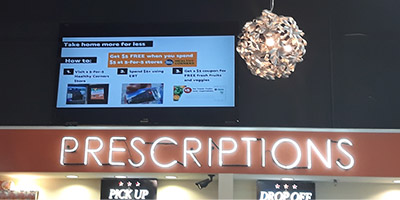
DC Central Kitchen’s Healthy Corners improve access to fresh produce through a nutrition incentive program.



